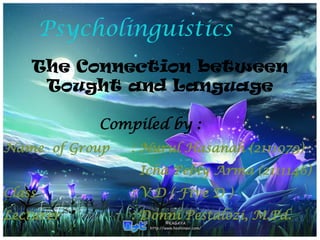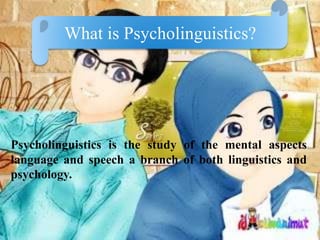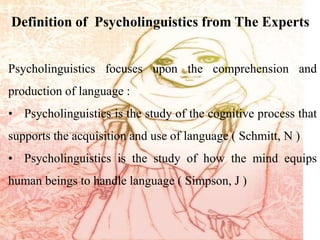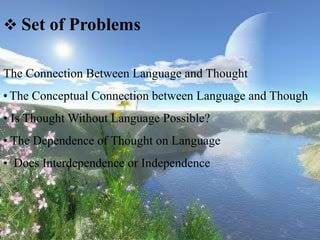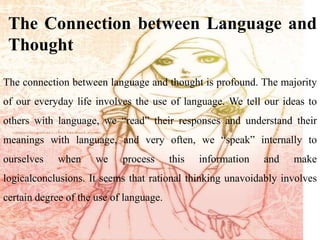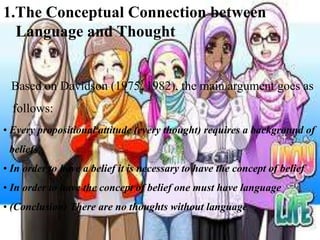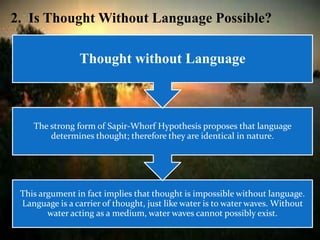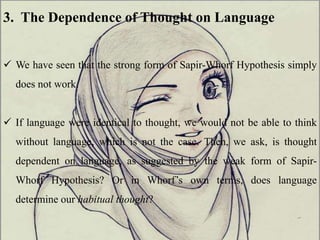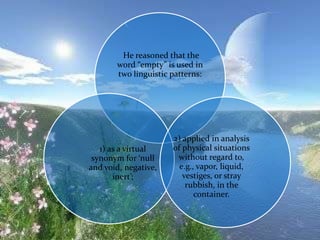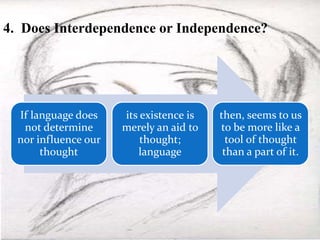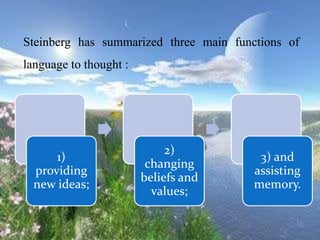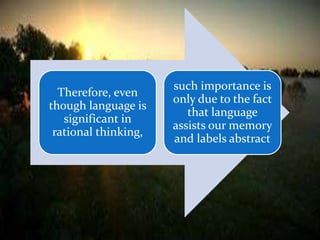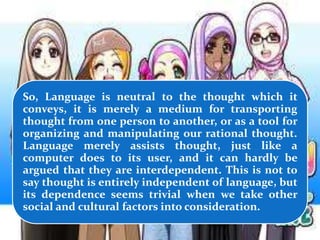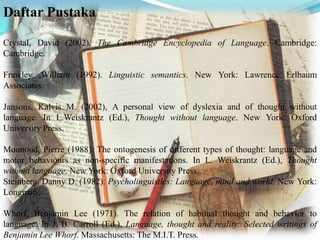This document discusses psycholinguistics and the connection between language and thought. Psycholinguistics is the study of the mental aspects of language and speech. The relationship between language and thought is profound, as thinking often involves internal or external use of language. There are differing views on whether thought is possible without language, and if language determines thought or merely assists it. Most experts argue that language assists thought by providing new ideas, changing beliefs, and aiding memory, but thought is not entirely dependent on language and can exist independently.
